Guide to Safe Travels for Visitors to the US
This is a guide to safe travels for visitors to the U S.
Traveling to the US for the first time can have mixed feeling, excitment and a little too much worry, and it’s completely normal.
I know there’s a lot to look forward too, like famous cities, beautiful places to go and take loads of pictures, and maybe family or friends you haven’t seen in a while that you would loved to spend some time with.
But if you’re not familiar with how things work there, it actually helps to be prepared so your trip goes well, safely and smoothly.
I remember how confused I was before my first visit. I wasn’t even sure how much funds to carry or how the airport security worked.
No one really sat me down to explain the small things that matter, things like local customs, health insurance, navigating transportation, cultural awareness, or what to do if one gets lost.
But nevertheless, I scaled through and I returned in one piece and much happier.
That’s why I put this guide to safe travel to the US together for us, to share what I wish someone had told me.
Supposedly you’re traveling for vacation, studies, work, or adventure, this guide covers tips that will help you feel confident and ready.
It also shares the essential steps for visitors, ensuring not only a secure stay but also an enjoyable exploration of the diverse landscapes and rich cultural tapestry that the United States has to offer.
Understanding US Travel Regulations:
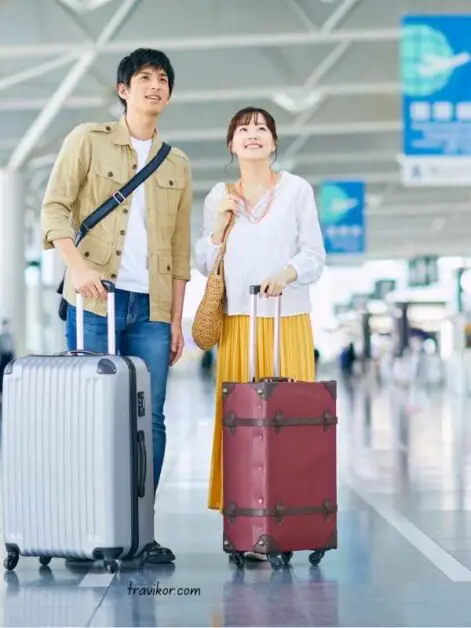
Before setting out on a journey to the United States, visitors must familiarize themselves with the detailed travel regulations in place.
Understanding the visa requirements, documentation essentials, and compliance with Transportation Security Administration (TSA) guidelines is crucial for ensuring a smooth entry into the country.
✅ Visa Requirements: Depending on the visitor’s country of origin and the purpose of their visit, different visa types may apply. It’s essential to determine the appropriate visa category and complete the application process well in advance of the intended travel date.
✅ Documentation Essentials: Visitors should ensure they have all necessary documentation, including a valid passport with sufficient validity, any required visas, and supporting documents such as travel itineraries and accommodation reservations.
✅ Compliance with TSA Guidelines: The Transportation Security Administration (TSA) enforces strict guidelines for airport security. Visitors should familiarize themselves with TSA regulations regarding carry-on items, prohibited items, and security screening procedures to expedite the airport security process.
By sticking to these US travel regulations, visitors can enhance their travel experience and avoid potential complications or delays upon arrival in the United States.
Health Precautions and Vaccinations:
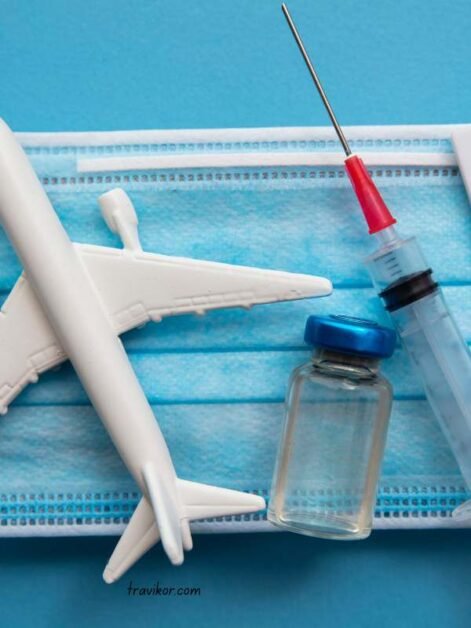
The current era of global health concerns, travelers must prioritize their well-being by staying informed about health precautions.
This section focuses on providing visitors with the knowledge needed to stay healthy and compliant during their visit, with a particular emphasis on COVID-19 guidelines and general health measures.
✅ Vaccinations: Stay up-to-date on recommended vaccinations before traveling to the United States. Ensure that routine vaccinations, as well as any specific vaccines required for entry, are administered well in advance.
✅ Health Insurance: Consider obtaining comprehensive health insurance coverage for the duration of the visit. This provides financial protection in case of unexpected medical expenses and ensures access to quality healthcare services.
✅ General Health Measures: Encourage visitors to adopt general health practices, such as maintaining good hygiene, staying hydrated, and getting adequate rest. Emphasize the importance of following any specific health recommendations provided by medical professionals.
By focusing on health precautions and staying informed about vaccinations and guidelines, visitors can contribute to a safe and enjoyable travel experience in the United States.
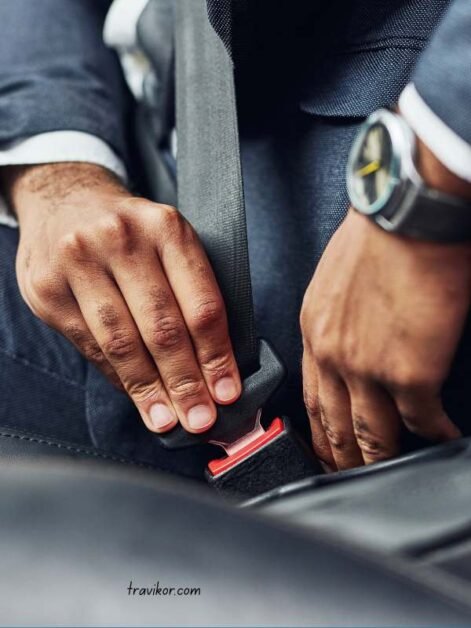
Traveling within the United States involves utilizing various modes of transportation. To ensure a secure journey, visitors should familiarize themselves with essential tips for air travel and the safe use of public transportation.
✅ Air Travel Tips:
Arrive Early: Plan to arrive at the airport well in advance to allow for security checks and potential delays.
Follow TSA Guidelines: Adhere to Transportation Security Administration (TSA) guidelines regarding carry-on items, liquids, and security procedures.
Choose Reliable Airlines: Go for reputable airlines with a strong safety record and positive customer reviews.
✅ Public Transportation Safety:
Research Routes: Before using public transportation, research and plan routes to ensure a clear understanding of schedules and stops.
Be Aware of Surroundings: Stay vigilant and be aware of surroundings while using buses, trains, or other public transit options.
Secure Belongings: Keep personal belongings secure and be cautious of pickpockets in crowded areas.
✅ Rental Car Safety:
Choose Reliable Providers: Select reputable rental car providers with well-maintained vehicles and transparent rental agreements.
Familiarize with Local Traffic Laws: Understand and follow local traffic laws and regulations when driving in the United States.
✅ Pedestrian Safety:
Follow Traffic Signals: Obey traffic signals and use designated crosswalks when navigating city streets on foot.
Stay Visible at Night: If walking during nighttime, wear reflective clothing and use well-lit pathways.
By following these transportation safety tips, visitors can navigate the diverse landscapes of the United States with confidence and security.
Choosing Accommodations Wisely:
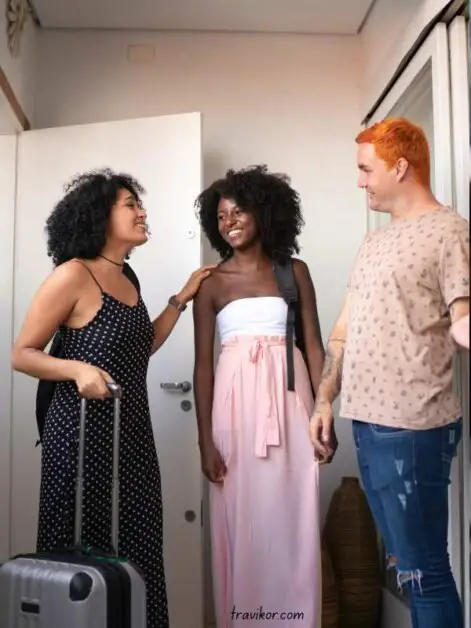
Selecting accommodations is more than just about comfort; prioritizing safety is crucial.
Here’s a comprehensive guide on considerations for choosing secure hotels, reading reviews, and researching neighborhoods to make informed and secure choices:
✅ Researching Neighborhood Safety:
Explore online resources and forums to gather insights into the safety of different neighborhoods.
Prioritize areas with lower crime rates and positive reviews from previous visitors.
✅ Reading Reviews:
Utilize reputable travel review websites to read feedback from fellow travelers.
Look for reviews specifically highlighting aspects of safety, such as well-lit surroundings and helpful staff.
✅ Checking Hotel Security Measures:
Go for hotels that prioritize security, including surveillance cameras, well-lit premises, and secure entry points.
Inquire about on-site security personnel and their availability.
✅ Proximity to Emergency Services:
Choose accommodations located in proximity to emergency services like hospitals and police stations.
✅ Secure Booking Platforms:
Use reputable and secure booking platforms to reserve accommodations.
Verify the legitimacy of the hotel or lodging before finalizing bookings.
✅ Access to Public Transportation:
Consider the accessibility of public transportation options near your accommodation.
This ensures a secure and convenient way to explore the surroundings.
By adding these considerations into the accommodation selection process, visitors can enhance their safety and overall travel experience in the United States.
Cultural Sensitivity and Awareness:

Understanding and respecting US cultural norms are crucial aspects for visitors to ensure a positive and respectful experience.
Here’s a comprehensive guide that sheds light on the diverse cultural landscape and provides guidance on embracing cultural sensitivity throughout different regions:
✅ Diversity Across Regions:
Recognize that the United States is a vast and diverse country with various cultural nuances in different regions.
Research and understand the cultural diversity specific to the areas you plan to visit.
✅ Respecting Social Norms:
Familiarize yourself with general social norms, such as greetings, personal space, and communication styles.
Be open to adapting to regional variations in social etiquette.
✅ Cultural Events and Festivals:
Find out any social gathering or cultural festivals happening place during your visit.
Participate respectfully and embrace the local celebrations, gaining a deeper understanding of cultural traditions.
✅ Dress Code Awareness:
Be mindful of dress codes, especially in religious or culturally significant places.
✅ Language Considerations:
Acknowledge the linguistic diversity in the United States.
Learn and use basic phrases in English, and be open to the linguistic diversity you may encounter.
✅ Understanding Tipping Culture:
Familiarize yourself with the tipping culture, which varies across regions and services.
Respect local practices and norms related to gratuities.
✅ Appreciating Local Cuisine:
Embrace the diversity of American cuisine, which varies from region to region.
Be open to trying local dishes and understanding their cultural significance.
✅ Religious Sensitivity:
Be aware of religious practices and observances, respecting the diversity of faiths in the country.
Exercise sensitivity when visiting religious sites or participating in religious events.
By prioritizing cultural sensitivity and awareness, visitors can foster positive interactions, build connections with locals, and ensure a respectful exploration of the United States’ rich cultural tapestry.
Emergency Preparedness:
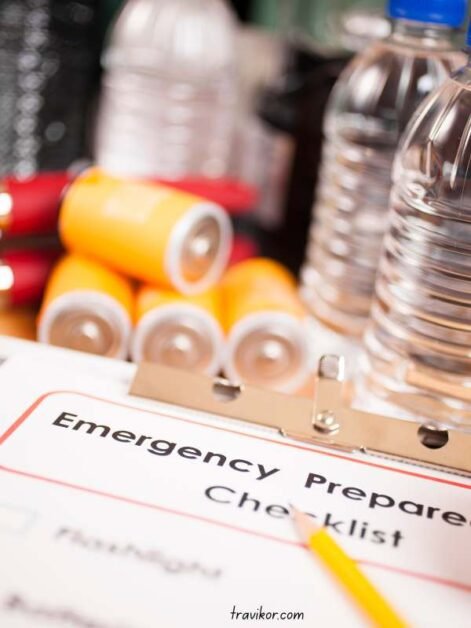
Being prepared for emergencies is a key aspect of ensuring a safe and secure travel experience in the United States. Here’s a guide that covers essential aspects to equip visitors to handle unexpected situations:
✅ Emergency Contact Information:
Save important contact numbers, including local emergency services (911), the nearest embassy or consulate, and your country’s embassy or consulate.
Keep a list of contacts for your accommodation and local friends or relatives.
✅ Travel Insurance Coverage:
Familiarize yourself with the details of your insurance coverage, including claim procedures.
✅ Healthcare Access:
Identify nearby healthcare facilities and hospitals at your travel destination.
Carry essential medical information, including allergies, existing conditions, and prescribed medications.
✅ Weather and Natural Disasters:
Stay informed about the weather conditions and any potential natural disasters in the region.
Follow local news and adhere to evacuation or safety guidelines provided by authorities.
✅ Travel Emergency Kit:
Pack a small emergency kit with essentials like a first aid supplies, flashlight, portable charger, and necessary medications.
Include important documents such as a copy of your passport and travel insurance details.
✅ Local Regulations and Laws:
Familiarize yourself with local laws and regulations, including emergency procedures.
Know evacuation routes and assembly points in your accommodation.
✅ Crisis Response Apps:
Download crisis response apps that provide real-time information about emergencies in your location.
Stay connected to local alerts and updates for timely information.
By prioritizing emergency preparedness, visitors can navigate unforeseen challenges with resilience and ensure a safer travel experience in the United States.
Safety in Tourist Attractions:
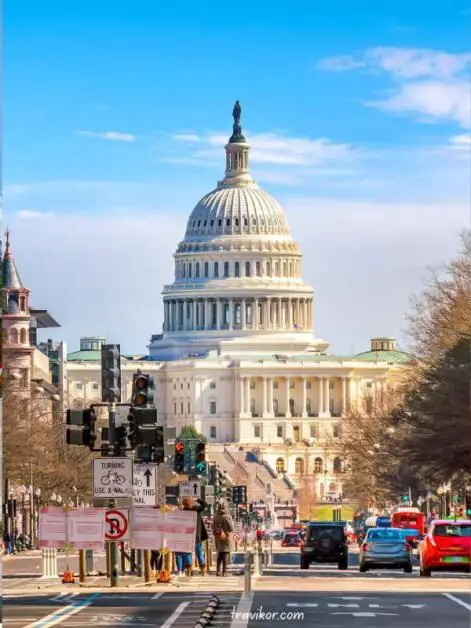
Tourist attractions are often bustling with activity, requiring visitors to be vigilant about their safety. Here’s a comprehensive guide on staying secure in crowded places and adhering to guidelines at popular tourist sites:
✅ Be Aware of Surroundings:
Be vigilant in your environs and be aware of your belongings.
Avoid displaying valuable items openly and use anti-theft measures such as money belts.
✅ Follow Official Guidelines:
Adhere to any posted guidelines and rules at tourist attractions.
Respect barriers, signs, and instructions provided by authorities.
✅ Use Official Entrances:
Enter attractions through designated entrances and avoid shortcuts or unauthorized access points.
Follow queues and maintain order in crowded areas.
Securing Belongings and Personal Items:
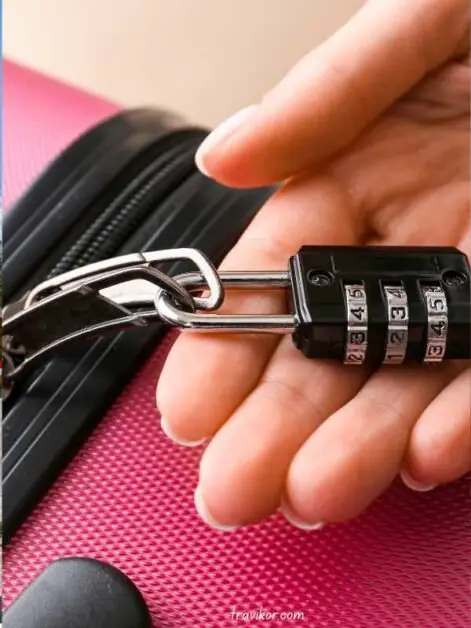
Preventing theft or loss is crucial during travels. Here are practical tips for securing belongings, utilizing hotel safes, and incorporating secure accessories into your travel routine:
✅ Money Belts and Hidden Pouches:
Invest in a quality money belt or hidden pouch to keep valuables close to your body.
Wear it discreetly under your clothing, providing an extra layer of security.
✅ Anti-Theft Bags and Backpacks:
Choose bags and backpacks designed with anti-theft features, such as lockable zippers and RFID-blocking compartments.
Go for crossbody bags, making it harder for potential thieves to snatch them.
✅ Hotel Safes:
Utilize hotel safes to store passports, extra cash, and valuable items when not in use.
Keep a record of the items stored, and double-check before checking out.
✅ Secure Locks:
Use sturdy locks for your luggage to prevent tampering during transit.
Consider TSA-approved locks for hassle-free security checks.
✅ Digital Copies of Documents:
Scan or take photos of important documents like passports, ID cards, and travel insurance.
Keep digital copies in secure cloud storage accessible from anywhere.
✅ Divide Valuables:
Dodge custody of all your money and valuables in one place.
Divide your money and cards between different pockets or compartment.
By adding these practices into your travel routine, you can significantly reduce the risk of theft or loss, providing peace of mind during your journey.
Local Laws and Regulations:
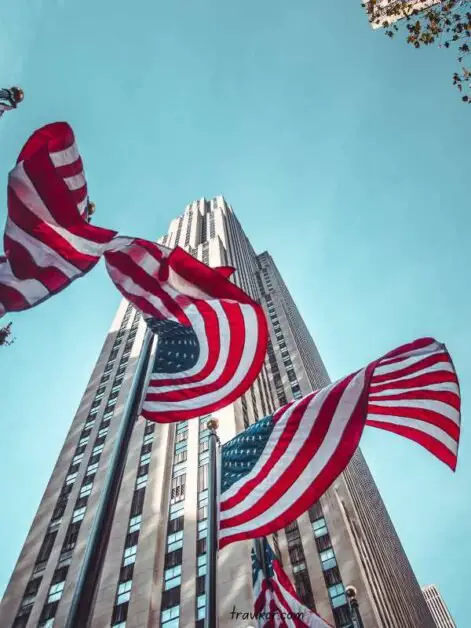
Getting through the legal landscape is crucial for a safe visit. This section highlights state-specific laws and provides insights into legal considerations for visitors, ensuring a harmonious stay.
✅ Alcohol Consumption:
Familiarize yourself with the legal drinking age, which varies by state.
Abide by local alcohol consumption laws to avoid legal complications.
✅ Traffic Regulations:
Understand and adhere to state-specific traffic rules and regulations.
Be aware of speed limits, seat belt laws, and other driving requirements.
✅ Smoking Policies:
Respect designated smoking areas and adhere to state-specific smoking policies.
Some states have strict smoking regulations, including public spaces and buildings.
✅ Recreational Marijuana Laws:
Be aware of states where recreational marijuana is legal.
Understand the permitted quantity and consumption locations, if applicable.
✅ Photography Restrictions:
Respect photography restrictions in certain areas, such as government buildings or military installations.
Be aware of privacy laws when taking photos in public spaces.
✅ Public Behavior:
Understand expectations regarding public behavior and conduct.
Respect cultural norms and local customs to avoid legal issues.
✅ Public Health Measures:
Stay informed about public health measures, especially during times of health crises.
Comply with any quarantine or health-related regulations in place.
✅ Wildlife Protection Laws:
Respect wildlife protection laws in natural habitats and conservation areas.
Do not engage in activities that could harm local fauna or flora.
✅ Noise Regulations:
Be mindful of noise regulations, especially in residential areas or late hours.
Respect quiet hours to avoid disturbances.
Understanding and respecting local laws is fundamental to a safe and enjoyable visit. By familiarizing yourself with state-specific regulations, you contribute to a positive travel experience for both yourself and the local community.
Conclusion
Embarking on a journey to the United States is a thrilling adventure, and ensuring a secure and enjoyable stay is paramount. This comprehensive guide has explored essential steps for visitors, covering everything from understanding travel regulations to embracing cultural awareness.
By focusing on safety, travelers can get through the details of the country with confidence, creating memorable experiences that last a lifetime. As you embark on your U.S. adventure, may this guide serve as a trusted companion, helping you make the most of your travels while keeping safety at the forefront. Safe travels!
See also: How to Become A Florida Resident
Best Sim Cards for Traveling to the USA in 2025
Frequently Asked Questions
What health precautions are necessary for US travel?
Understanding and adhering to COVID-19 guidelines is essential. Visitors should also consider routine vaccinations and general health precautions.
How can visitors ensure their belongings’ safety?
Practical tips include using secure accessories, hotel safes, and staying vigilant in crowded places.
Are there cultural differences between US regions?
Yes, the US is culturally diverse. Visitors should be aware of and respect these differences to ensure cultural sensitivity.
What emergency contacts should travelers have on hand?
Important contacts include local emergency services, the nearest embassy, and contacts of friends or family in the US.
How do I stay updated on local laws during my visit?
Researching state-specific laws and staying informed about any updates is crucial. Local authorities and embassy contacts can provide guidance.
What transportation options are safest for tourists?
Opting for reputable and well-reviewed transportation services, whether by air or public transport, ensures a safer travel experience.
How can visitors respect cultural diversity in the US?
Embracing diversity involves being open-minded, respecting local customs, and engaging in cultural experiences with sensitivity and curiosity.
Resources : USTravelDocs.com

